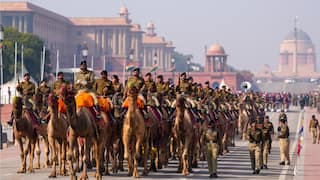Sharing Google Pin With Police Cannot Be A Bail Condition: Supreme Court
The Supreme Court on Monday ruled that court cannot ask an accused person to share his location via Google pin with police as a bail condition.

The Supreme Court on Monday ruled that asking an accused person to share his location via Google pin cannot be a condition for granting bail. The top court said that there cannot be a bail condition that enables the police to constantly track the movements of the accused and peep into the privacy of the accused.
A bench of Justice Abhay S Oka and Justice Ujjal Bhuyan delivered the verdict saying that the bail condition requiring an accused to drop a pin on Google Maps for the investigating officer to access his location violates a person's right to privacy.
Earlier, the top court while reserving its verdict observed that the condition of sharing Google pin location as a bail condition is hit by the fundamental right to privacy guaranteed under Article 21 of the Indian Constitution and cannot be a bail condition.
The court also relaxed a bail condition that required a foreign accused to obtain an assurance from his Embassy that he will not leave India.
The court was hearing a plea against certain conditions set by the Delhi High Court in its order granting interim bail to Frank Vitus, a Nigerian national accused in a drugs case. The High Court in 2022 directed the accused man and a co-accused to place a pin on Google Maps to ensure that their whereabouts were visible to police.
The apex court earlier issued notice to tech giant Google India and asked for its assistance to understand the technical aspects of sharing a PIN in the context of granting bail on condition of sharing live location. The top court was faced with a question whether a condition to share live location in a bail order infringes the right to privacy.
However, on April 8, the apex court was informed that the correct authority to explain this would be Google LLC and not Google India.
The apex court had clarified that Google is not being made a respondent in the case. The notice is issued by the court to seek clarity so it can examine the larger question of "right to privacy".
The Ministry of Electronics and Information Technology of the Government of India had submitted in the court that as far as the working of Google PIN is concerned, it will be appropriate to seek information from Google.
The top court was examining whether a bail condition that the accused must share the Google Pin location with the investigating officer be imposed. The top court further adressed if bail to a foreigner can be conditional on obtaining an assurance from the concerned Embassy that the accused will not leave India.






































